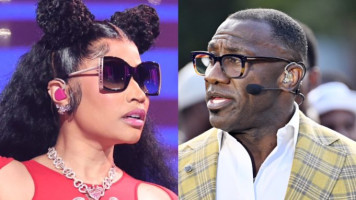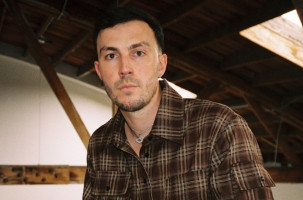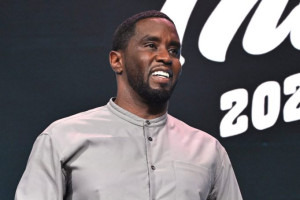When Frances McDormand ended her Oscar acceptance speech earlier this year with the words "inclusion rider," she kicked an ongoing conversation over Hollywood's lack of diversity -- both in front of and behind the camera -- into high gear. It's a conversation the music industry is having, as well -- one that continued at the Billboard Live Music Summit on Wednesday with a panel called Out of Balance: Does the Touring Business Need an Inclusivity Rider?
Moderator Karen Rappaport McHugh called it the summit's most diverse panel, and it was hard to disagree. Four of the six panelists were women and four were people of color. Joining McHugh, the co-founder of Rebelle Road and Muddy Girl Productions, were Tri Star Sports and Entertainment CEO Lou Taylor, WME partner Kevin Shivers, Live Nation Urban vp of talent and touring Heather Lowery, LaPolt Law owner and attorney Dina LaPolt, Blacksmith Holdings CEO Corey Smyth and Venable LLP attorney and partner Belinda Martinez Vega.
Shivers proposed adding the panel to this year's summit after attending an industry dinner at which, as he described it, "there was no diversity: There were 195 males that fit the status quo, myself, and five women. I remember texting my boss Marc Geiger; I was like, 'What the fuck is this? We gotta do better.' And he goes, 'I agree.'"
Nearly all the panelists described facing challenges throughout their careers based on their race or gender. Lowery said that as a female, African American assistant at William Morris (before its merger with Endeavor), she "hit a brick wall … not because I wasn't experienced or qualified, but because I wasn't given an opportunity." She finally left and started her own agency, which she ran for 12 years before joining Live Nation. "I always tell people I left corporate America as an assistant and returned as VP."
Other panelists told similar, often inspiring stories of forging their own paths in the industry. "I really made the ladder myself," said Taylor, who founded Tri Star when she was just 27. "I see myself as a beacon," said Smyth, who noted then when he first got into artist management in the early '90s, "there wasn't a lot of people who believed in hiring black managers."
Though everyone agreed that inclusivity riders -- which could be used by artists, talent agencies and tour promoters to require greater diversity on everything from stage crews to festival lineups -- are a valuable tool for addressing the touring industry's continued inequities, several panelists suggested other, more immediate ways to facilitate change and challenge the status quo. Proactive hiring practices and training programs were recurring themes: Shivers noted that at WME, he had started a mentorship program for assistants called Empower, and LaPolt spoke of recruiting "people that have overcome hardships" to work at her law firm. "If you go to Harvard and you're top 10 in your class, I will not be interviewing you," she said. "I hire the person who's been to 10 different high schools, who worked three jobs [while] going to law school … that's the person I want."
Martinez Vega spoke of Venable LLP's involvement in the Leadership Council on Legal Diversity, which works to create greater opportunities for women and people of color pursing careers in legal professions. "We believe in the pipeline," she said. "You've got to make sure you nurture your talent so people can't make the excuse, 'There's no qualified women partners; there's no qualified minorities to go up the ranks.'" She also called out the common industry practice of unpaid internships as a barrier to greater diversity, since only those from more privileged backgrounds can afford to work for no pay.
Throughout their discussion, the panel brought up numerous other organizations and advocacy groups that are working to increase representation in the industry. LaPolt shouted out her charity Urban Fitness 911, with which she works to give scholarships to high school students from Compton and South L.A. so they can attend her music business classes at UCLA. McHugh mentioned SoundGirls, an online directory of female producers and engineers, as well as U.K. charity PRS Foundation and their Keychange initiative, which has gotten numerous music festivals worldwide to pledge gender parity in their lineups by 2022.
Ultimately, several panelists challenged those in attendance at the Montage Beverly Hills to step up and do their part. "I think everybody in this room can start today," Shivers said. "Spend time with somebody that doesn't look like you. That starts a dialogue."





